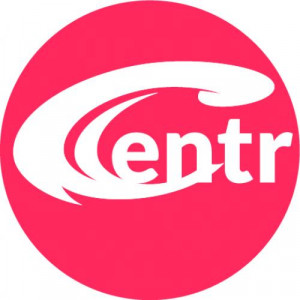News

CENTR is hiring a Senior Policy Advisor!
We are looking for a dedicated, experienced and highly motivated Policy Advisor to join our small, fabulous team and serve our international and multilingual membership which is at the core of the internet infrastructure. Starting date from 1 February 2023.

EU Policy Update – October 2022
In a nutshell: The European Commission revealed its Work Programme for 2023 and issued its proposal for a Council Recommendation on a coordinated approach to strengthen the resilience of critical infrastructure, whilst the Council released its conclusions on ICT supply chain security. The Digital Services Act was published in the Official Journal of the EU. Parliamentary committees released documents on the reform of the geographical indications’ framework in the EU for craft and industrial products. Commissioner Johansson confirmed that blocking orders under the CSAM Regulation would not apply to DNS4EU. The European Court of Justice’s Advocate General stated that national authorities should be able to access data linked to IP addresses where no other means to identify holders of addresses suspected of copyright infringement is available.

Signs-of-life crawler performance report
CENTR has been running the Signs-of-Life domain crawler (v1) in stable production now for almost 2 years. We believe this data is important for assessing the general health of domains among ccTLD registries, so we consider it important to ensure that accuracy in the crawler is high. For this reason, we plan to provide reports on its performance and have now completed the first one, which shows that the crawler has been performing very well, with an accuracy rating of 94% for ccTLDs and 96% for gTLDs. This report provides more detail, breaking down elements of the crawler and data science metrics such as precision, recall and the F1 score.

CENTR publishes White Paper on registration data accuracy in European national domain registries
CENTR, the association which represents European national top-level domain name registries (ccTLDs) such as .si or .eu, has published a White Paper on registration data accuracy in European national domain registries.

EU Policy Update – September 2022
In a nutshell: The President of the European Commission issued her State of the Union Letter of Intent for 2022, whilst the Czech Presidency outlined its priorities to committees of the European Parliament. The European Commission released its proposal for a Cyber Resilience Act and for an Artificial Intelligence Liability Act. The CJEU reaffirmed the prohibition of the general and indiscriminate retention of electronic communications data. IMCO released its opinion on the EUID proposal and the European Parliament issued a Study on Updating the European digital identity framework. The AGRI Committee published a Working Document on the proposal for the reform of geographical indications for wine, spirits drinks and agricultural products. The British National Cyber Security Centre issued guidance on the taking down of malicious content to protect brands.

EU Policy Update – Summer 2022
In a nutshell: The Council of the EU and the European Parliament reached a provisional agreement on the ‘Path to the Digital Decade’ 2030 policy programme. The Council of the EU released its Conclusions on EU Digital Diplomacy. The European Parliament issued a Study on internet fragmentation and on Europe’s PegasusGate. The Council of the EU issued its compromise text on the EUID proposal, while ITRE’s Draft Report received numerous amendments. Further information was provided on the political agreement on the CER Directive.

CENTR expresses concerns on the geographical indications reform in the EU
CENTR, the association of European national top-level domain name registries (ccTLDs) such as .ie or .eu, has published a comment on the geographical indications reform in the EU, expressing its concern for the potential implications of extending GI protection to domain names. CENTR welcomes the overall goal of revising the geographical indications (GI) legal framework in the EU to ensure the production of quality agricultural, craft and industrial products, but fears that the current proposal could have unwarranted consequences on the domain name system, and thus on the functioning of the essential internet infrastructure.

CENTR publishes the CENTRstats Global TLD Report Edition 2/2022
The CENTRstats Global TLD Report Edition 2/2022 has been published. It covers the global status and registration trends in all top-level domains (legacy gTLDs, new gTLDs and ccTLDs), with a specific focus on the European ccTLD market.

CENTR Report on IETF114: DNS remains a hot topic
IETF 114 was held in Philadelphia, between 23 July and 29 July. Marco Davids from SIDN Labs attended the meeting and has written a summary of the main points of relevance for CENTR members.

Weekly News back in August
The Weekly News will be going on holiday for the next couple of weeks, and will return in the week of 1 August. The CENTR Secretariat wishes you a wonderful summer!

